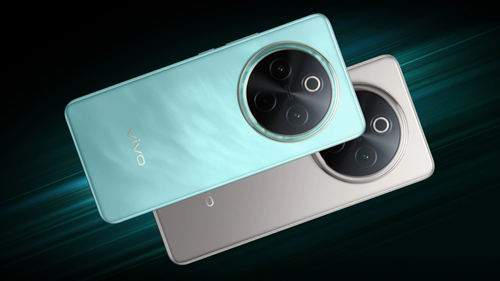Ad
Expert Reviews
Why do people still buy mechanical watches?

Mechanical watches are a fascinating example of how technology can become an art form. Unlike quartz watches, which run on batteries and electronic circuits, mechanical watches are powered by intricate mechanisms that rely on springs, gears, and levers to keep time. Mechanical watches are often more expensive, less accurate, and more fragile than quartz watches, so why do people still buy them?
One reason is that mechanical watches have a history and a heritage that quartz watches lack. Mechanical watches date back to the 16th century when they were first invented as portable timepieces.
Since then, they have been refined and improved by generations of watchmakers, who have created some of the most complex and beautiful machines ever made. Mechanical watches are not just products, they are works of craftsmanship and engineering that reflect the skill and passion of their makers.
Another reason is that mechanical watches have a personality and a charm that quartz watches lack. Mechanical watches have a life of their own, as they tick and wind and move with the wearer. Mechanical watches have a soul, as they express the style and taste of the wearer.
Also Read: Best Smart Watches Under 10,000
Mechanical watches have a story, as they age and wear and accumulate memories with the wearer. Quartz watches, on the other hand, are cold and impersonal, as they run on batteries and circuits that have no character or emotion.
A third reason is that mechanical watches have a value and prestige that quartz watches lack. Mechanical watches are often seen as status symbols, as they signify wealth and sophistication.
Mechanical watches are also seen as investments, as they retain or increase their value over time. Quartz watches, on the other hand, are cheap and disposable, as they lose their value and become obsolete.
Also Read: Hardik Pandya Watch Collection
How Does Mechanical Watch Work?
Mechanical watches are timepieces that rely on a complex system of gears, springs, and other mechanical components to measure and display time. Unlike electronic watches, which use quartz crystals and electronic circuits for timekeeping, mechanical watches are entirely powered and operated by mechanical movements. Here's how mechanical watches work:
1. Main Components:
Mechanical watches consist of several key components:
- Mainspring: A coiled spring that stores energy when wound.
- Escapement Mechanism: Controls the release of energy from the mainspring in a controlled manner.
- Balance Wheel: Oscillates back and forth, regulating the release of energy from the escapement.
- Gears and Wheels: Transmit the energy from the mainspring to various parts of the watch, including the hands that display time.
- Hands and Dial: Indicate the time on the watch's face.
2. Winding the Watch:
Mechanical watches need to be wound regularly to keep running. Turning the crown on the side of the watch winds the mainspring, storing energy that will be gradually released to power the movement.
3. Escapement Mechanism:
As the mainspring unwinds, it transfers energy to the escapement mechanism. This mechanism controls the release of energy in small, precise increments, allowing the watch to keep accurate time.
4. Balance Wheel:
The escapement sends energy to the balance wheel, a small wheel that oscillates back and forth at a fixed rate. This back-and-forth motion is what regulates the movement of the watch's gears.
5. Gears and Wheels:
The balance wheel's oscillation is transferred through a series of gears and wheels to the hands of the watch. Each gear's size and position determine the speed at which various parts of the watch move, such as the second, minute, and hour hands.
6. Accuracy:
The accuracy of a mechanical watch is influenced by the quality of its components, the skill of the watchmaker, and factors like temperature and position. High-quality mechanical watches can be very accurate, but they usually deviate by a few seconds each day.
7. Types of Mechanical Watches:
- Manual Wind (Hand-Wound): These watches require manual winding via the crown to keep running. They often have a traditional charm and are appreciated by watch enthusiasts for their tactile nature.
- Automatic (Self-Winding): Automatic watches feature a rotor that winds the mainspring through the natural motion of the wearer's wrist. They don't require manual winding as long as they are worn regularly.
8. Craftsmanship and Aesthetics: Mechanical watches are often considered pieces of art due to their intricate mechanical movements, which can be visible through transparent case backs. They can also feature complications like chronographs, moon phase displays, and more.
9. Maintenance: Mechanical watches require periodic servicing to ensure they continue to operate accurately. This involves cleaning, lubricating, and adjusting the movement by skilled watchmakers.
Mechanical watches have a rich history and are highly regarded by watch enthusiasts for their craftsmanship, heritage, and the connection they offer to traditional watchmaking techniques.
Also Read: Anant Ambani Watch Collection, Life and Net Worth
Pros and Cons of mechanical watches
Pros of Mechanical Watch:
-
Artistry and Craftsmanship: Mechanical watches are intricate pieces of art, often showcasing the craftsmanship and skills of watchmakers. Their complex movements are often visible through transparent case backs, allowing enthusiasts to admire the mechanics.
-
Heritage and Tradition: Mechanical watches have a rich history dating back centuries. They are a link to traditional watchmaking techniques and can carry a sense of nostalgia and heritage.
-
Tactile Experience: Manual wind mechanical watches offer a hands-on experience, requiring the wearer to wind the watch regularly. This tactile interaction can be satisfying for enthusiasts.
-
No Battery Dependence: Mechanical watches do not rely on batteries or external power sources, making them self-sustaining as long as they are wound or worn.
-
No Electronic Interference: Mechanical watches are not affected by electromagnetic interference, which can disrupt electronic devices. This makes them more reliable in certain environments.
-
Horological Complications: High-end mechanical watches can include intricate complications such as chronographs, perpetual calendars, moon phase displays, and more, adding to their functional and aesthetic appeal.
Also Read: Top 5 Automatic Watches Under 15000 in India
Cons of Mechanical Watch:
-
Accuracy: Mechanical watches are generally less accurate than quartz watches. They can deviate by a few seconds or more per day, requiring occasional adjustment.
-
Regular Winding (Manual Wind): Manual wind mechanical watches need to be wound regularly, which can be seen as a hassle for some users.
-
Maintenance: Mechanical watches require periodic servicing to maintain accuracy and functionality. This can involve costs and finding a skilled watchmaker.
-
Fragility: Mechanical movements contain many delicate components that can be susceptible to damage from shocks, drops, or exposure to magnetic fields.
-
Limited Power Reserve: Depending on the watch's movement, it might have a limited power reserve, meaning it will stop running if not worn or wound for a certain period.
-
Higher Cost: Mechanical watches can be more expensive than quartz watches due to the craftsmanship and complexity of their movements. High-end mechanical watches with complications can be particularly pricey.
-
Lack of Features: Mechanical watches might lack modern features like digital displays, GPS, fitness tracking, and notifications that are available in smartwatches or electronic watches.
Also Read: 10 Best Watches Under 15000 in India 2023
Conclusion
In conclusion, mechanical watches are more than just timepieces, they are expressions of art, culture, and identity. They appeal to people who appreciate the beauty and complexity of mechanical engineering, who value the tradition and heritage of watchmaking, and who want to own something unique and valuable. Mechanical watches are not for everyone, but for those who love them, they are worth every penny.
However, they require more attention to accuracy, maintenance, and winding compared to their quartz counterparts. Your preference will depend on your appreciation for the artistry of watchmaking and your willingness to manage the characteristics of mechanical timepieces.
Also Read: Which are the Best Atomic Wristwatches Available in India?
Follow Us:
Ad
Recent News

Motorola Unfolds a New Mobile: Razr Fold Stuns at MWC 2026
02-Mar-2026 11:28 AM

Is Tecno Pop X Really New? March 4 Launch Sparks Big Question
02-Mar-2026 07:09 AM
Xiaomi Watch 5 Goes Global: This Tiny Tag Could Change Tracking Forever
02-Mar-2026 06:22 AM

Xiaomi 17 Ultra and Xiaomi 17 Set for India Debut on March 11: Check Out Details Here
02-Mar-2026 05:22 AM

Prices Jumping in March? These Popular Phones Could Cost You More
27-Feb-2026 07:12 AM
Reviews & Guides
View All

Vivo V70 Elite Review 2026: Price in India, Specs, Features

Asus Zenbook 14 UM3406G Review: All New Thin and Light Ai Laptop

Realme P4 Power 5G First Impressions: Massive Battery and Power

Brother MFC-J5855DW Printer Review 2026: Features, Specs, Performance

Samsung Galaxy S26 Ultra Privacy Display Explained: How It Works

Apple iPhone 17 vs Samsung Galaxy S26: Price in India, Specifications

Should You Buy a Smart AC in India 2026? Pros, Cons, and Top Models

Window AC or Split AC: What Should You Choose in 2026?
Ad
Latest Mobiles In India
Ad
Ad












